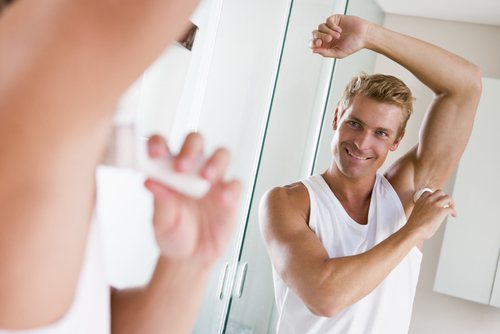Hyperhidrosis is a very common disorder where a person sweats excessively and more than that the body needs to regulate the temperature. Excessive sweating is not harmful to the body but is much embarrassing and distressing. It can also leave a negative impact on a person’s health. The exact cause for hyperhidrosis depends on its type.
- Primary focal hyperhidrosis- In this type, sweating occurs mainly on the hands, head, face, feet and underarms.
- Secondary generalized hyperhidrosis- This type of hyperhidrosis can begin from adulthood, and in this condition, sweat originates from all over the body or from a specific area.
What causes hyperhidrosis?
Hyperhidrosis is caused mainly due to the overactive sweat glands. The other reasons can be due to:
- The generalized hyperhidrosis is caused by a medical condition such as an infection, any chronic disease or disorder disrupting body’s natural balance of hormones. It can also be caused by medications.
- On the other hand, the cause of focal hyperhidrosis is genetics. Hyperhidrosis is not any contagious condition, but genes play some role as people with this condition have other family members suffering from the same too.
Also read: How to cope up with Anxiety disorder?
What are the symptoms of hyperhidrosis?
The signs and symptoms of hyperhidrosis are:
- Clammy or wet palms of the hands
- Clammy or wet soles of the feet
- Frequently/excessive sweating
- Noticeable sweating that soaks through clothing
Also, people with hyperhidrosis,
- In some cases, one could find irritating or painful skin problems like fungal or bacterial infections
- Maybe worried about having stained clothing
- Maybe self- conscious
- May go for employment where there is no physical contact or any human interaction
- May spend a good amount of time everyday to deal with their sweat like wiping, changing clothes, placing napkins at underarm, washing and wearing dark colored clothes
- May also get worried more than other people about their body odor
Also read: Perform Yoga and Take your Journey to Happiness!
Hyperhidrosis treatment- how to stop excessive sweating?
The treatment options for excessive sweating include:
- Antiperspirants- The excessive sweating can be easily controlled by the strong antiperspirants that plug the sweat ducts. You may try products that contain about 10 to 20 percent of aluminium chloride hexahydrate known to be the first line of treatment for underarm sweat. The doctor can also prescribe products that havea higher dose of aluminium chloride. It has to be applied during night time on the affected areas.
- Medications- Some medicines can prevent the stimulation of sweat glands. These drugs are commonly prescribed for certain types of hyperhidrosis like excessive sweating of the face.
- Lontophoresis (electric technique) – In this method, electricity is used to temporarily turn off the sweat glands. It is very effective for the sweating in the hands or feet. The hands and feet are placed in water and then current of electricity is passed through it. The therapy lasts for about 10-20 minutes.
- Botox- Botulinum toxin type A (Botox) is used to treat the problem of severe underarm sweating. Botulinum toxin when injected into the underarm temporarily block the nerves that trigger sweating.
- Endoscopic thoracic sympathectomy (ETS)- In the most severe cases, a minimally-invasive surgical procedure called sympathectomy can be prescribed by a doctor when other treatments fail to work. This method tends to turn off the signal that tells the body to sweat excessively. Mostly it is done on patients whose palms sweat much more than usual. It can also be used to treat extreme sweating of the face. This procedure fails to work on those patients that face excessive armpit sweating.
- Under arm surgery- There is a surgery that can be done to remove the sweat glands in the armpits. The methods used include laser, curettage, excision, or liposuction. These procedures are commonly done with the help of local anesthesia.
Also read: What is The Best Way to Get Rid of a Cold?
Conclusion!
Hyperhidrosis is not contagious but is very distressing at times. You can easily prevent it using antiperspirants or changing clothes every time. If the situation gets out of hand, then follow the best treatment, as recommended by your doctor because keeping in touch with the physician, will help you live a stain-free and foul smell free life ever.



